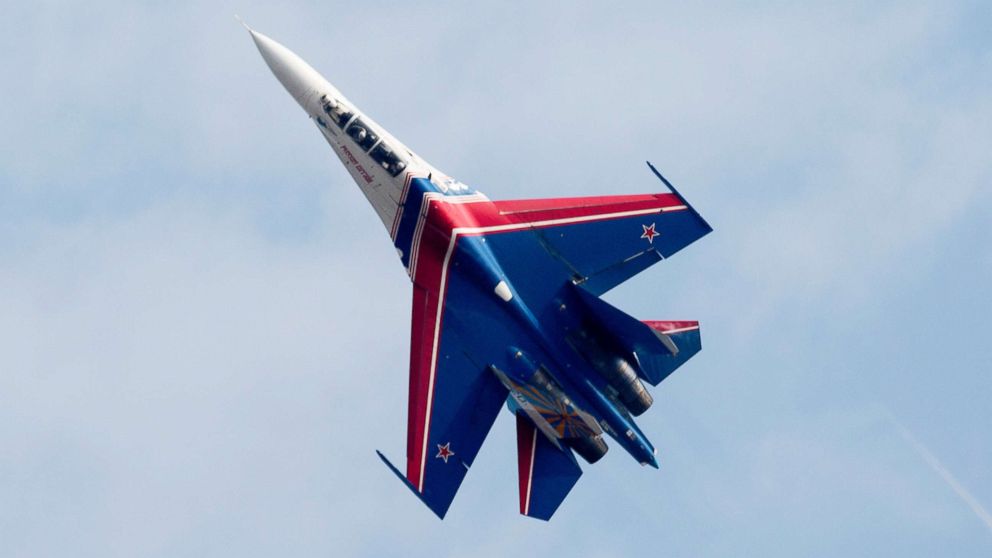Russian fighter flies 5 feet from US plane over Black Sea: Navy
— -- A Russian fighter jet came within 5 feet of a U.S. Navy surveillance aircraft on Monday as it flew in international airspace above the Black Sea. The Navy labeled the encounter "unsafe" and said the American plane had done nothing to provoke the Russian action.
"On Jan. 29, 2018, a U.S. EP-3 Aries aircraft flying in international airspace over the Black Sea was intercepted by a Russian SU-27," said a statement from U.S. Naval Forces Europe-Africa.
"This interaction was determined to be unsafe due to the SU-27 closing to within five feet and crossing directly through the EP-3’s flight path, causing the EP-3 to fly through the SU-27’s jet wash," said the statement.
The intercept lasted two hours and 40 minutes and the Navy said the American aircraft was operating in accordance with international law "and did not provoke the Russian activity."
"The Russian military is within its right to operate within international airspace, but they must behave within international standards set to ensure safety and prevent incidents," said the statement. "Unsafe actions increase the risk of miscalculation and midair collisions."
But the Russian Defense Ministry denied that its fighter's actions were unsafe.
"The whole flight of the Russian Su-27 was strictly in accordance with international airspace rules, there were no abnormal situations," said a statement from Russia's Ministry of Defense.
The statement said the Russian fighter had been scrambled towards "an unidentified air target approaching the Russian airspace borders" over the Black Sea.
It said the SU-27 "approached the aircraft at a safe distance and identified it as a U.S. Navy aircraft EP-3 Aries II."
Monday's encounter is similar to another Russian intercept over the Black Sea in late November in which a Russian SU-30 fighter jet used its afterburners to fly in front of a Navy P-8 Poseidon surveillance plane. The jet wash created by that action led the American aircraft to roll severely through the turbulence.
That incident was the first "unsafe" encounter for a U.S. military aircraft in months.




